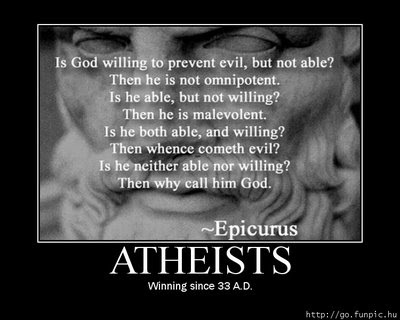- Joined
- Sep 17, 2005
- Messages
- 8,211
- Reaction score
- 4,179
- Location
- Chicago
- Gender
- Male
- Political Leaning
- Libertarian
I can make a logical postulation about any noun.
Is this really analogous? Could you expand?
This is why a claim being logical is almost entirely useless when not coupled with some other basis for establishing truth. For example, empirical evidence.
There is a limit to the powers of empiricism, no?
Combining logical absolutes with empirical evidence is monumentally more powerful a tool for extracting truth from reality than either one alone. This is demonstrable.
I agree, but empiricism has its limits, so logic must suffice in certain situations.

